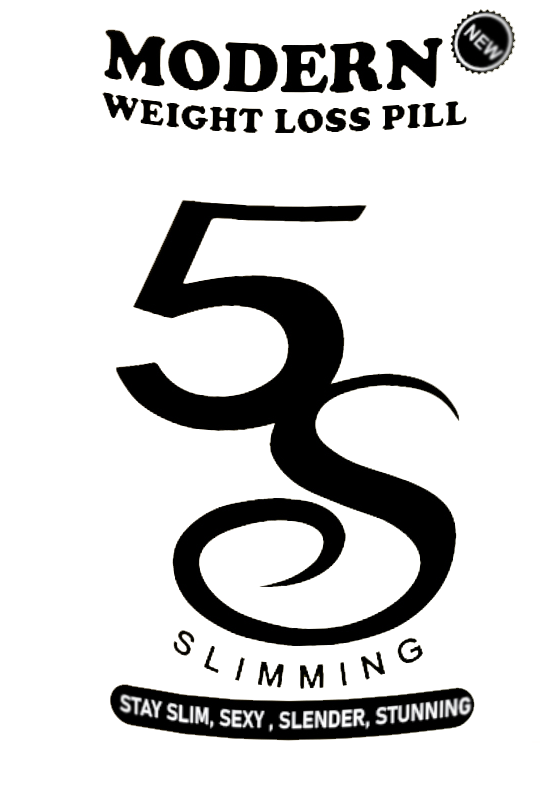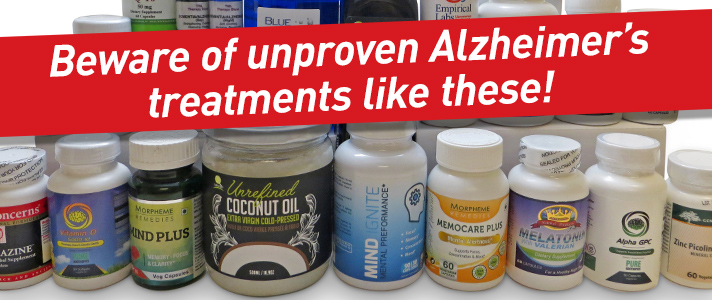Watch Out for False Promises About So-Called Alzheimer’s Cures

Safely Soothing Teething Pain and Sensory Needs in Babies and Older Children
February 16, 2019
5 reasons to avoid fad diets
June 13, 2022Chances are, you know someone with Alzheimer’s disease or a related dementia involving memory loss. That’s due in part to the fact that as our older population grows, so does the number of people facing serious cognitive and related health issues.
Not surprisingly, this demographic change has been accompanied by a growth in the number of marketers who prey on this population, pitching products that make unproven claims that they can prevent, treat, delay, or even cure Alzheimer’s disease.
These purported miracle cures are sold primarily on the Internet. They are often, though not always, falsely labeled as dietary supplements. Regardless of their form, these products fly in the face of true science. What these companies are selling is the false hope that there is an effective treatment or cure.
At best, the products offered by these scam artists will have no effect on the patient; at worst they may pose a danger to a patient who takes them. Not only will they not do what they claim, the ingredients in these products may interact with, and potentially interfere with, essential medications. Furthermore, these products have not been evaluated by the U.S. Food and Drug Administration (FDA) for safety and effectiveness. These products are a waste of money and may also delay consumers from receiving the necessary care and support for their illness.
Look Out For Unproven Claims about Alzheimer’s Treatments
Remember the saying, “if it seems too good to be true, it probably is?” Unfortunately, when faced with a serious health issue, even the most rational person can be led to believe implausible claims. Indeed, that’s what companies selling fake treatments count on.
One of best ways to protect yourself from fake treatments is to ask whether the claim seems too promising and if it contradicts what you’ve heard from reputable sources about treatments for Alzheimer’s disease. Companies selling unproven Alzheimer’s treatments often include a range of unsupported and expansive claims about the supposed healing powers of their products. These includes statements such as:
- “You can even reverse mental decline associated with dementia or even Alzheimer’s in just a week;”
- “Clinically shown to help disease of the brain such as Alzheimer’s and even dementia;”
- “Supplements are used to cure Alzheimer’s disease;”
- “can … reduce the risk of Alzheimer’s by half;”
- “May have a role in preventing the progression of Alzheimer’s;” and
- “Clinically shown to help disease of the brain such as Alzheimer’s and even dementia.”
Another red flag is that many of the claims made by these companies about the supposedly curative powers of their products are often not limited to Alzheimer’s disease. Consumers should steer clear of products that claim to cure or treat a broad range of unrelated diseases.
For instance, the FDA sent a warning letter to a company selling one product marketed as a dietary supplement that the company claimed “may help alleviate the neurodegenerative effects of Alzheimer’s disease and Parkinson’s,” and also claimed it was successful in “Relieving pain associated with rheumatism, back ache and arthritis; Can help fight off colds and flu; Can help with blood sugar management; Can help stabilize high blood pressure; [and] Help fight off bacterial infections.”
How to Protect Yourself
Here are some other ways to protect yourself and others from fake Alzheimer’s treatments:
- Question any product that also claims to be a “scientific breakthrough.” Companies marketing these products take advantage of people when they are most vulnerable and often looking for a miracle cure.
- Always check with your doctor or health care professional before buying or using any over-the-counter product, including those labeled as dietary supplements.
A great deal of scientific research is being conducted on Alzheimer’s disease, but at this point, no cure or treatment have been shown to stop or reverse the progression of the disease. Several prescription drugs have been approved by the FDA to treat people who have been diagnosed with Alzheimer’s disease. Most medicines work best for people in the early or middle stages of Alzheimer’s, and can slow down some symptoms, such as memory loss, for a time. But none of these medications stops the disease itself.
Treatment development and FDA-approval requires clinical research and testing to ensure that any new drugs are both effective and safe. For patients interested in accessing investigational drugs, there are legal ways to do so, such as by taking part in clinical trials.
FDA Protects Consumers from Companies Selling Unapproved New Drugs
The FDA takes action against companies marketing unapproved new drugs that claim to prevent, diagnose, treat or cure Alzheimer’s disease and a number of other diseases and health conditions.
The FDA issues warning letters to advise the companies to change or remove claims about their products that render the products misbranded or otherwise illegally marketed, and if the companies don’t comply, the FDA may take further legal action to prevent the products from reaching consumers.
To learn more about the illegal marketing of certain products claiming to treat Alzheimer’s and related diseases, visit www.fda.gov/alzheimershealthfraud. If you know of a product or supplement (other than approved drugs) being advertised or sold as treatment for Alzheimer’s or other diseases, you can report it on FDA’s website here.
The FDA has issued warning letters and online advisory letters regarding several of these misleading products. Photos of these products are available on FDA’s Flickr photostream




